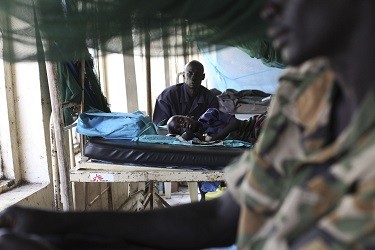
Every year, more than a billion people across the world get infected and over one million die from vector-borne diseases. Dengue, malaria, leishmaniasis, schistosomiasis, lyme disease and yellow fever are some deadly diseases that are fast spreading across the world and are carried by mosquitoes, ticks, flies, water snails and other such vectors.
Today, 7 April on World Health Day 2014, World Health Organization (WHO) is stressing on the increasing risk of vector-borne diseases, with the slogan "Small bite, big threat", according to a new WHO report. The organization also highlights that such diseases are completely preventable.
"A global health agenda that gives higher priority to vector control could save many lives and avert much suffering. Simple, cost-effective interventions like insecticide-treated bed nets and indoor spraying have already saved millions of lives. No one in the 21st century should die from the bite of a mosquito, a sandfly, a blackfly or a tick." says Dr Margaret Chan, WHO Director-General.
Poorest people are mostly affected by these vector-borne diseases, particularly those who lack pure drinking water, hygiene and sanitation facilities. Malnourished and weakened immunity people are mainly susceptible to such diseases.
The most widely spread among vector-borne diseases is Schistosomiasis, which is transmitted by water snails and affects around 240 million people worldwide. Schistosomiasis causes anemia and increases learning disabilities among children, according to the report.
Schistosomiasis can be checked through regular treatment of susceptible group of people with a safe and effective medicine, as well as enhancing access to safe drinking water and sanitation.
Dengue, a mosquito borne disease that is now prevalent in 100 countries, thus making over 2.5 billion people at risk, which is more than 40% of the world's population. China, Florida and Portugal have been recently reported of dengue-borne diseases, according to the report.
Again Greece has reported of malaria for the first time in 40 years, which highlights the need for continued vigilance in order to ensure any malaria resurgence.
"Vector control remains the most important tool in preventing outbreaks of vector-borne diseases. Increased funds and political commitment are needed to sustain existing vector-control tools, as well as medicines and diagnostic tools - and to conduct urgently needed research." says Dr Lorenzo Savioli, Director of WHO's Department of Control of Neglected Tropical Diseases.
Check for the World Health Day 2014: "Small Bite, Big Threat" Video
















